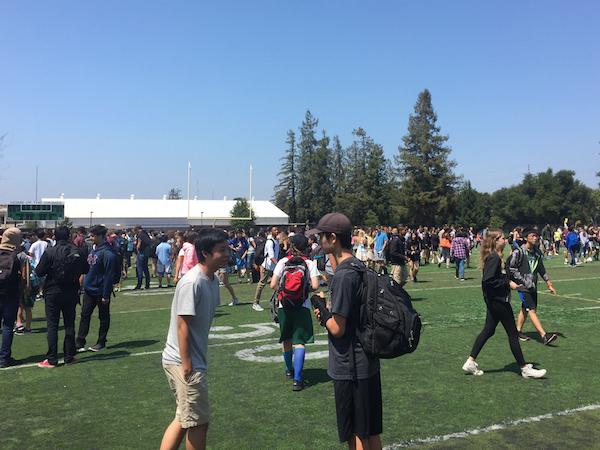
Assistant principal Jerry Berkson said the alarm was triggered by a student in the Media Arts Center. Berkson said the administration is working on integrating new methods to prevent false fire alarms. He declined to describe these measures.
These alarms caused students and teachers to practice the new evacuation system, in which classes stay together rather than find their fourth period classes, before the scheduled fire drill on Friday. Berkson said the drill will be vital in giving the administration a chance to analyze the system’s efficiency.
“We can always get better and we have a new system,” Berkson said. “Friday will enable us [administrators] to observe a little bit more and really get a good look at how things are going.”
According to English teacher George Vuong, the ambiguity of the cause of false alarms is irritating, leads to confusion and wastes time.
“I don’t like these fire alarms because we never know the reason why until afterwards,” Vuong said. “Last time it was just a student that pulled it.”
Vuong said unplanned evacuations serve as a problematic setback to teachers.
“It’s just a great big waste of time in terms of instructional minutes and in terms of trying to get things done in the class,” Vuong said. “It sets us all behind in our lessons and our planning for the future.”
According to senior Max Dorward, the alarm was frustrating and a major inconvenience for his teacher and classmates.
“It [the alarm] was very annoying especially since it happened at an important time in my class and we will have to finish the lesson another time,” Dorward said.
According to Dorward, the constant disruptions dangerously normalize false alarms, potentially taking the weight out of a real emergency.
“I think it [the frequency of false alarms] takes the weight out of the situation because it’s become such a normal thing that every time it happens nobody takes it seriously,” Dorward said.

